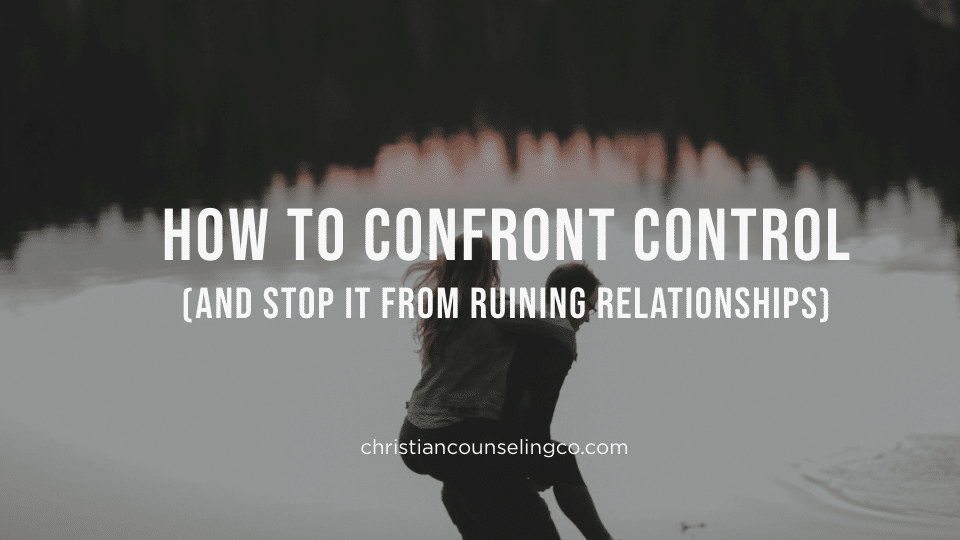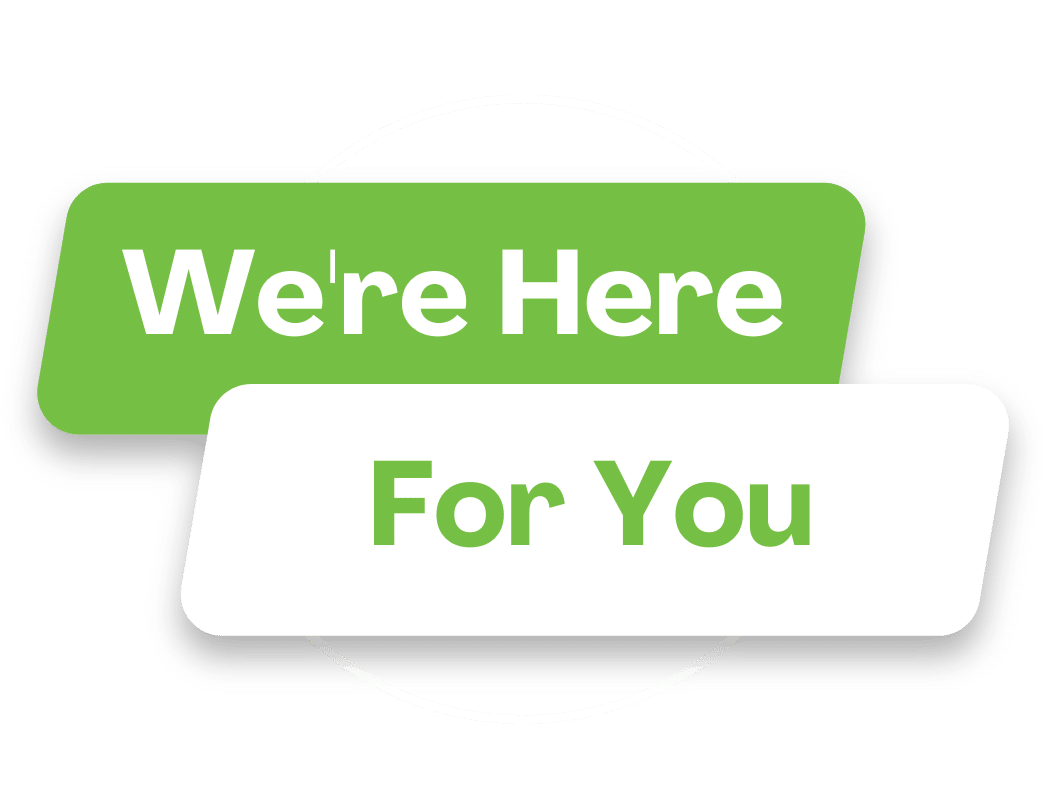
Confronting power and control in relationships can be vital to a healthy, long, relationship with you and another person.
As we continue on in this theme of “Boundaries,” let’s focus on a common boundary problem that can interfere with the ability to maintain and draw a sense of safety from a boundary.
In their book Boundaries, Cloud and Townsend discuss the characteristics of “the Controller.” They define this person as someone who “Aggressively or manipulatively violates boundaries of others,” (61). There are amazing people we care about and love very deeply in our lives who have found comfort in control; without it, they feel vulnerable, fearful, and insecure.
Often it is the people closest to us that we care about the most who, usually motivated by love and initially, good intentions, go to the extreme in their desire for control and end up hurting the ones they wanted to love and protect in the first place.
Pastor Delbert Young points out that, “Eve manipulated Adam. Sarah controlled Hagar and manipulated Abraham. Jacob manipulated Esau. Laban manipulated and controlled Jacob. Miriam and Aaron even tried to control and manipulate Moses. Eli’s sons controlled and manipulated the people. Delilah manipulated Samson…. Usually the manipulator was/is a very close acquaintance. Sometimes it’s a spouse – Adam/Eve. Sometimes it’s a superior/boss – Sarah/Hagar. Sometimes it’s a relative – Laban/Jacob, Miriam, Aaron/Moses. Sometimes it’s a ministry – Eli’s sons/people. Sometimes it’s a lover – Delilah/Samson.”
The word manipulate often has a negative and demeaning connotation, suggesting intentional, malicious action. Sometimes the action can be intentional and malicious, but for individuals who struggle with respecting and honoring boundaries, there is a desperation for relationship and affirmation that causes them to “trespass” the boundary in a way that can be perceived by the boundary-creator as “manipulation.” Regardless of perspective or intent, this issue of control in relationships needs to be exposed and re-directed because it can lead to even greater relational distress.
What are the tools of a “controller?”
Let’s look at another example in Scripture of poor boundaries coupled with the need for control. “Then Delilah pouted, “How can you say you love me when you don’t confide in me? You’ve made fun of me three times now, and you still haven’t told me what makes you so strong!” Judges 16:15-17 (NLT).
Check out the words used in the King James Version:
“And it came to pass, when she pressed him daily with her words, and urged him, so that his soul was vexed unto death.”
How do controlling relationships work?
Delilah presses, prods, and guilts Samson in order to get what she wants; this causes death to Samson’s soul. Controllers use implied or direct threats and guilt as primary tools of provoking or inciting behavior from another individual. Have you used threats, ultimatums, or words of guilt to “motivate” someone you are close to? This happens in struggling marriages all of the time. Spouses throw out unreasonable and malicious ultimatums to try to make their spouse change. Ultimatums are always a form of manipulation and are threatening… they look like this: “If you don’t __________ then I will __________.” Or “If you __________ then I won’t __________.” Watch out for statements like this and others such as: “If you really loved me, you would _________” and “After all I have done for you…” or receiving the “silent treatment.”
What are the traits of a controlling person?
We can all be controlling at times. We have all been in situations where we don’t want to surrender our responsibility over a project or issue (while still knowing it might be better to trust others or delegate) because by being in control, we can “be sure” it is done correctly, and we can receive validation, acceptance, and feelings of pride about our accomplishments. However, this need for control can become incessant, consuming, habitual, and unhealthy.
People who struggle with control often show signs and symptoms of co-dependency. John Bradshaw defines codependency as a “loss of inner reality and an addiction to outer reality.” According to Pea Melody, “codependents demonstrate very low self esteem, have difficulty in setting functional boundaries, owning and experiencing their own reality, and taking care of their needs.”
Codependency and control are purposeful and functional behaviors (although they may be maladaptive). The most common reason for control in relationships is protection and self-preservation. The silent statement of this protective mechanism is “I must be in control, because if I am not, I will be hurt and that gives people an opportunity to reject me… this is my biggest fear.” It also could imply that these individuals struggle in their faith, stemming from an unwillingness to surrender to God’s control and provision. Pastor Young says it best, “You can have absolute faith in your ability to get things done and get what you want by control. Your confidence in your ability is good, but your lack of faith to trust God is not good.” All behavior is purposeful, but that doesn’t mean that it is healthy.
Here are 12 common traits/symptoms of this co-dependent issue that often accompanies control identified by Marriage and Family Therapist, Darlene Lancer:
1. Low self-esteem. Feeling that you’re not good enough or comparing yourself to others are signs of low self-esteem. The tricky thing about self-esteem is that some people think highly of themselves, but it’s only a disguise- they actually feel unlovable or inadequate. Guilt and perfectionism often go along with low self-esteem.
2. People-pleasing. It’s fine to want to please someone you care about, but codependents usually don’t think they have a choice. Saying “No” causes them anxiety. Some codependents have a hard time saying “No” to anyone.
3. Poor boundaries. Blurry or weak boundaries. Feeling responsible for other people’s feelings and problems or blaming their own on someone else. Some codependents have rigid boundaries. They are closed off and withdrawn, making it hard for other people to get close to them.
4. Reactivity. A consequence of poor boundaries is that you react to everyone’s thoughts and feelings. If someone says something you disagree with, you either believe it or become defensive.
5. Caretaking. Another effect of poor boundaries is that if someone else has a problem, you want to help them to the point that you give up yourself. In fact, they need to help and might feel rejected if another person doesn’t want help. Moreover, they keep trying to help and fix the other person, even when that person clearly isn’t taking their advice.
6. Control. Control helps codependents feel safe and secure. Everyone needs some control over events in their life. You wouldn’t want to live in constant uncertainty and chaos, but for codependents, control limits their ability to take risks and share their feelings. Sometimes they have an addiction that either helps them loosen up, like alcoholism, or helps them hold their feelings down, like workaholism, so that they don’t feel out of control. Codependents also need to control those close to them, because they need other people to behave in a certain way to feel okay.
7. Dysfunctional communication. Codependents have trouble when it comes to communicating their thoughts, feelings and needs. Of course, if you don’t know what you think, feel or need, this becomes a problem. You’re afraid to be truthful, because you don’t want to upset someone else. Communication becomes dishonest and confusing when you try to manipulate the other person out of fear.
8. Obsessions. Tendency to spend their time thinking about other people or relationships. This is caused by their dependency and anxieties and fears. They can also become obsessed when they think they’ve made or might make a “mistake.” Sometimes you can lapse into fantasy about how you’d like things to be or about someone you love as a way to avoid the pain of the present. This is one way to stay in denial, discussed below, but it keeps you from living your life.
9. Dependency. Codependents need other people to like them to feel okay about themselves. They’re afraid of being rejected or abandoned, even if they can function on their own. They need always to be in a relationship, because they feel depressed or lonely when they’re by themselves for too long.
10. Denial. One of the problems people face in getting help for codependency is that they’re in denial about it, meaning that they don’t face their problem. Usually they think the problem is someone else or the situation. They either keep complaining or trying to fix the other person, or go from one relationship or job to another and never own up the fact that they have a problem.
11. Problems with intimacy. By this I’m not referring to sex, although sexual dysfunction often is a reflection of an intimacy problem. I’m talking about being open and close with someone in an intimate relationship. Because of the shame and weak boundaries, you might fear that you’ll be judged, rejected, or left. On the other hand, you may fear being smothered in a relationship and losing your autonomy.
12. Painful emotions. Codependency creates stress and leads to painful emotions. Shame and low self-esteem create anxiety and fear about being judged, rejected or abandoned; making mistakes; being a failure; feeling trapped by being close or being alone. The other symptoms lead to feelings of anger and resentment, depression, hopelessness, and despair. When the feelings are too much, you can feel numb.
Control, manipulation, and codependency come from a place of fear and insecurity. Fear and insecurity cause “boundary-trespassing” and depletion of trust. But there is always hope and it is never too late to change your behavior and confront your fears. God has good plans for your life and desires to see you thrive in your relationships!
If you are struggling with these issues or are being affected by them, seek help from a professional counselor who can help you to identify fears, create purposeful and loving boundaries, the process through painful emotion, improve communication, surrender control, re-establish relationships, and assist you in building self-esteem and understanding your value. We believe it is possible for you to move from a controlling relationship to a happy one, full of freedom. Please contact us if you’re interested in online or in-person Christian counseling.
“We can’t manipulate people into swallowing our boundaries by sugarcoating them. Boundaries are a “litmus test” for the quality of our relationships. Those people in our lives who can respect our boundaries will love our wills, our opinions, our separateness. Those who can’t respect our boundaries are telling us that they don’t love our nos. They only love our yeses, our compliance. “I only like it when you do what I want.” -Henry Cloud

